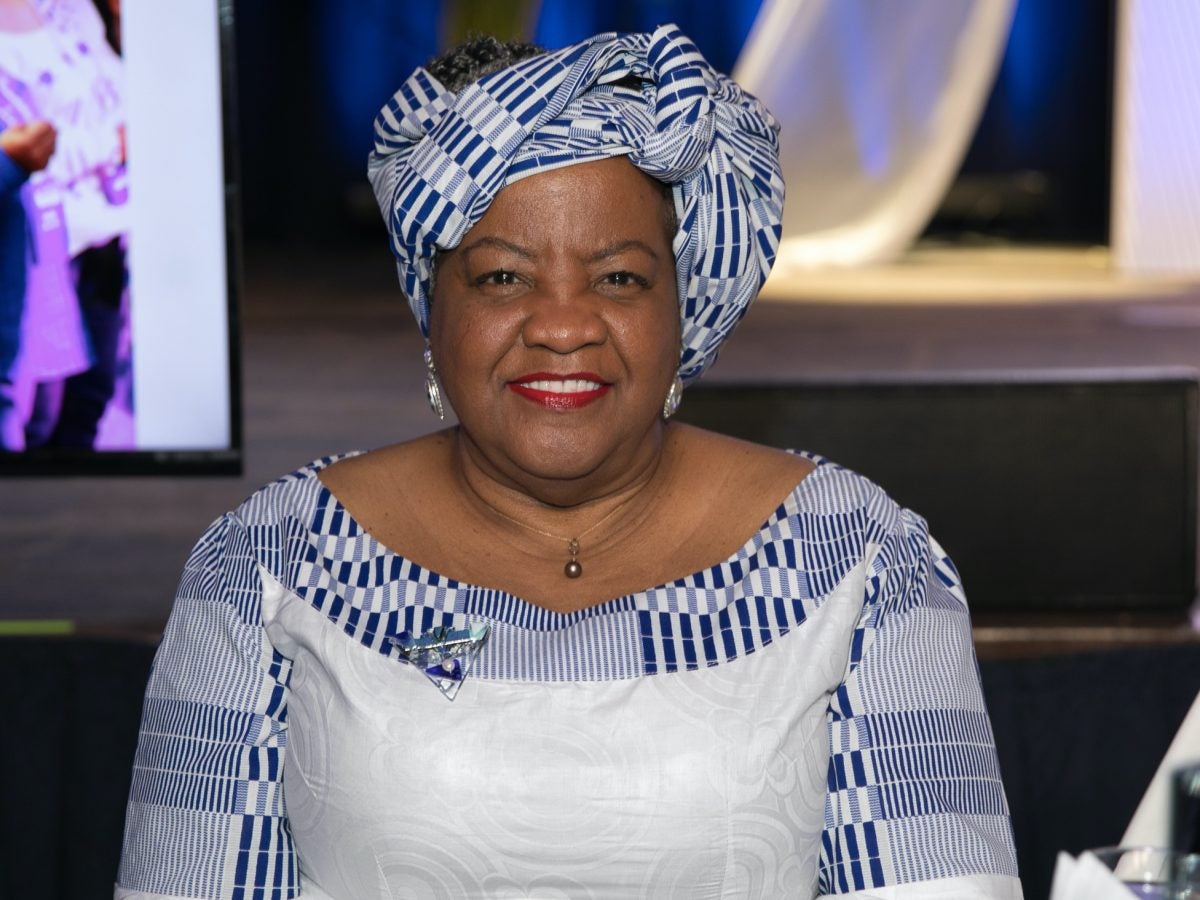
Despite being in immense pain, Elizabeth Omilami began applying an Ankara print wrap over her fine hair to complete her outfit and planned to head out for her second meeting of the day when she was stopped in her tracks.
“No, mom—you’re not going anywhere,” Omilami’s daughter told her firmly. “You need to put yourself first. Rest.”
This is the new normal for her.
Since her father Hosea Williams’s death in 2000, Omilami stepped in his place to run the food bank the civil rights leader started more than 50 years ago. One of the largest Black-owned foundations dedicated to eradicating hunger, Hosea Feed The Hungry has been Omilami’s brightest light, and heaviest burden.
For more than 22 years, she’s provided resources to Atlanta’s most underserved residents, doing everything from arranging housing services to signing children up for school. But she’s finding that her body won’t allow her to do it all anymore.
She was recently diagnosed with breast cancer. A beloved member of the civil advocacy community and an actress boasting credits on Queen Sugar, Ray and The Blind Side, she’s well known in many circles. But no one knows about her diagnosis except close family, until now.
“I decided to share this because the advice that I got from other women is getting me through this, not what I got from the doctors. I want to do the same for other that are experiencing what I’m going through. It was Sister Hines that told me to look out for the constant fatigue and hair loss. To expect the metallic taste in my mouth and the bone pain after I take my medication. They are getting me through and I need to pay it forward.”
Non-Hispanic white women and non-Hispanic Black women have the highest incidence of breast cancer with an estimated 31,000 new cases each year.
Although her treatment has slowed her down a bit, she says it won’t stop her mission.
“I got this workaholic from my dad, who was always working, even up until the moment a week or two before his death,” she told ESSENCE, sharing that wheelchair-bound Williams used a fort lift to get to his second floor office just before his passing in 22 years ago.
“I’d feel guilty if I ever stopped working,” Omilami admitted. “Although I love working, it’s more obligation that drives and that’s something I don’t think will ever be quelled, even while all this is happening my body. But I know this is the wake up call I needed to remind me to also love on myself along with everyone else.”
She acknowledged this sentiment is shared by so many other Black women who often face burnout as a result of overworking in their jobs and households.
“We’re conditioned to overachieve,” she shared. “This whole experience with the breast cancer stopped my world and caused me to look at myself, not as what I do, but, who am I? I’ve not taken a good look at her in a while, apart from the job.”
While Omilami applauds Black women for their ambition, she also implores them to take care of themselves in the building process.
“You’re more than enough no matter what you do. Find some quiet and sit in it. Your life is worth it.”